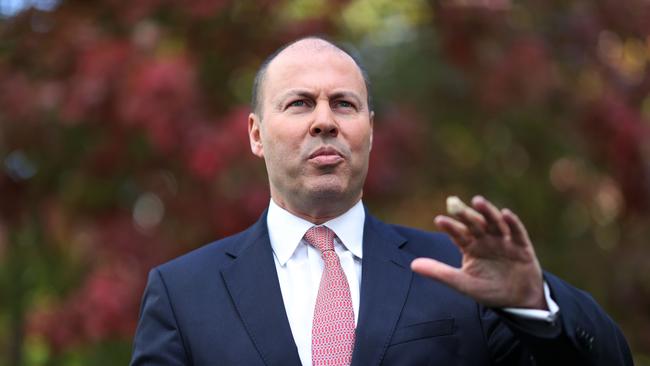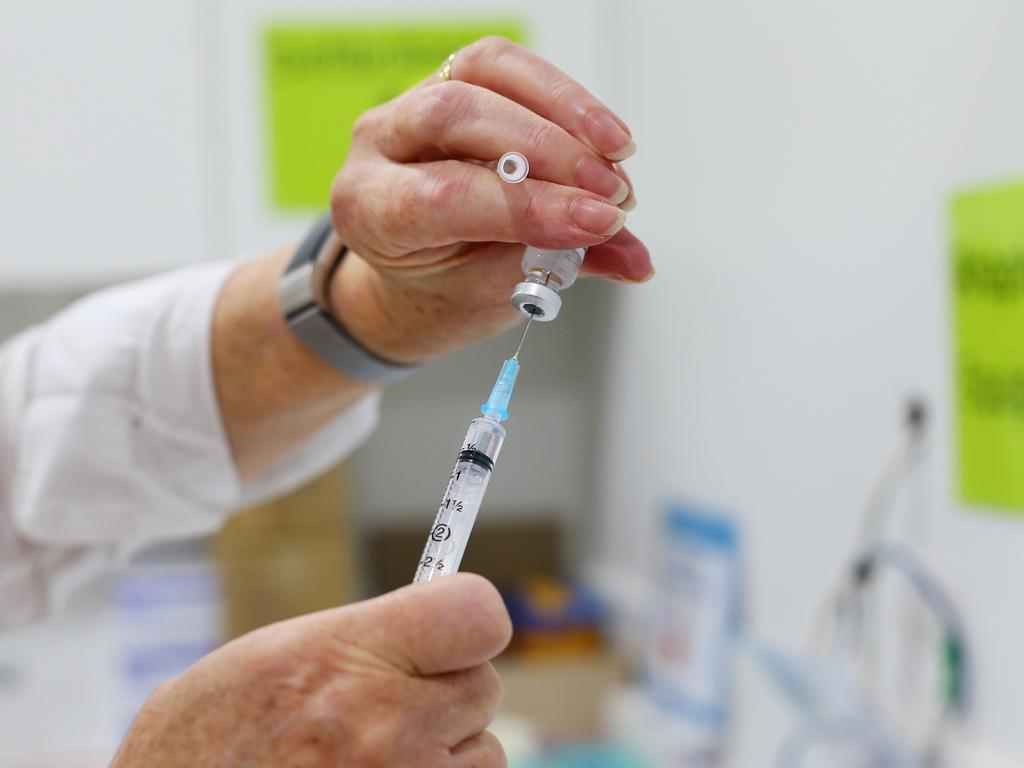
Australia won’t have a first-rate recovery from recession with a third-rate rollout of the COVID-19 vaccine, which makes that rebound weaker than it would otherwise be.
The Prime Minister’s shambolic handling of this most important task has been laid bare not just by his humiliating abandonment of his own targets but also by the news that the Americans are lately deploying more vaccines in a single day than our country has in total, since the beginning.
The Morrison government’s been too quick to cut economic support to some industries; too slow to deploy the vaccine; and too out of touch to understand the consequences. Economists expect these failures on jabs could have consequences for jobs.
In recent weeks the International Monetary Fund and Deloitte Access Economics have both drawn a clear link between the strength of the economic recovery and the effective rollout of vaccines. In its own budget, the Morrison government did much the same: it estimated an earlier vaccine rollout could have boosted economic activity by $34bn, over the next year. This “upside scenario” claims an earlier rollout would “provide certainty for both households and businesses” and would help support “stronger consumption and investment”.
Clearly, a slower vaccine rollout will have the opposite effect. It will mean some restrictions remain for longer, or may reappear, and that risks jobs — even if new estimates of these economic costs are disguised by other, likely upward, revisions elsewhere in next month’s budget forecasts.
Australia’s economic recovery is expected and the improvement in the labour market in early March is welcome, but still patchy — so celebrations are premature.
For many working families, small businesses, industries and communities impacted by international border closures and other necessary restrictions, the recession isn’t over yet. The government just took JobKeeper away from a million workers; almost two million can’t find a job or enough hours to support loved ones; and millions more can’t get ahead as record low wages growth is expected to get even worse.
The recovery is hostage to vaccines, the withdrawal of economic support and attacks by Liberals and Nationals on incomes and job security. If their answer to prolonged weaknesses in our economy and flatlining living standards is more cuts to wages or more insecurity, they’re asking the wrong question. Worse is the fact the various announcements the Prime Minister and Treasurer have made have added to uncertainty rather than assuaged it. The hiring credit scheme deliberately excludes workers over 35 and has delivered just 609 of the 450,000 jobs the Treasurer said would flow. The inadequacy of subsidised airfares even attracted criticism from the industry it was supposed to assist. The $40bn support scheme for small business has so far deployed just $3bn in actual help.
Perhaps the biggest failure on the economic front has been the mismanagement of JobKeeper — a good idea proposed by Labor, helpful in so many ways, but badly designed and implemented by the Treasurer. Evidence for this is found in every one of the billions of dollars wasted on already profitable companies that didn’t need support, while still-struggling workers and small businesses now go without. This is just one way the budget is riddled with rorts and weighed down with waste.
No wonder debt is multiples of the so-called “debt-and-deficit disaster” the Liberals and Nationals inherited. No wonder they don’t have enough jobs and opportunities to show for that record debt when they’ve sprayed so much of our money around on sports rorts, dodgy land deals, political advertising, taxpayer funded executive bonuses, and more.
There is an opportunity cost to this because it robs Australians of the ability to deal with the economic weakness and mismanagement that has defined much of the government’s eight years in office: record low wages growth; unacceptably high underemployment and insecure work; the worst business investment as a percentage of GDP since the early 1990s; stagnant productivity; and more.
That’s why next month’s budget can’t be yet another budget of missed opportunities that wastes the recovery, leaves too many Australians behind and fails to invest in their jobs and the future.
It needs to be more ambitious about full employment. That requires a genuine jobs plan that strengthens and diversifies our economy and ensures growth is broader, more inclusive and more sustainable. That’s the guiding principle behind Labor’s National Reconstruction Fund, which will partner with the private sector and back projects that create jobs, broaden our industrial base and revive our regions. With our other positive alternative policies for cheaper and cleaner energy, more apprentices and more accessible childcare, we can build an economy stronger after COVID-19 than it was before.
Jim Chalmers is the opposition Treasury spokesman.





The credit for last week’s jobs figures and Australia’s performance during the pandemic and its aftermath belongs to our people, who have done an outstanding job limiting of the spread of the virus. But by bungling the vaccine rollout their federal government risks squandering the momentum and opportunities that flow from that achievement.